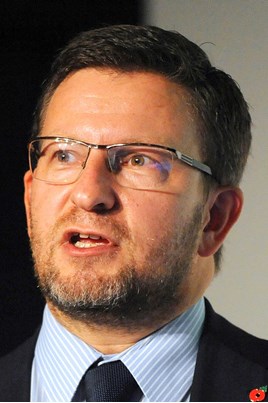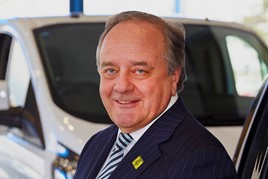Motor finance companies and car dealers have borne the brunt of the COVID-19 pandemic.
After being forced to shut in March 2020 under Government rules, they were required by the Financial Conduct Authority (FCA) to offer payment deferrals to customers in financial distress because of the crisis, thereby extending motor finance terms by up to three months, albeit the customers had to pay larger monthly instalments when the period ended.
With the start of a second national lockdown in November, an extension to the temporary holiday for personal contract purchase (PCP), hire purchase (HP) and conditional sale agreements, was announced running until this month (July 2021).
While this was undoubtedly a boost for customers struggling to keep up with repayments, it also put added pressure on financial companies and dealers.
Director of motor finance and strategy at the Finance and Leasing Association (FLA) Adrian Dally says that across the finance and insurance markets there were 1.8 million requests for forbearance from customers, of which motor finance made up 800,000. However, he adds that the vast majority went on to resume payments.
 “It was an extremely difficult, unprecedented time,” says Dally. “When dealerships closed there were next to no motor finance sales, meaning income for finance companies and dealers dried up.
“It was an extremely difficult, unprecedented time,” says Dally. “When dealerships closed there were next to no motor finance sales, meaning income for finance companies and dealers dried up.
“But the main thing was our members got the payment deferrals over the line for their customers. And now, encouragingly, as we continue to adapt to this unfolding situation, things are starting to look much more positive.”
SALES IMPACTED
Some dealers have felt the sharp end of the deferrals too. Chairman and chief executive of TrustFord Stuart Foulds says last year’s sales were significantly impacted as a result.
 “We experienced a volume of customers asking for deferred payment, especially where customers were furloughed,” says Foulds. “Our finance partners have been extremely helpful and understanding to these requests, but this, undoubtedly, affected sales in 2020. That said, from a financial perspective our 2020 results were ahead of 2019.”
“We experienced a volume of customers asking for deferred payment, especially where customers were furloughed,” says Foulds. “Our finance partners have been extremely helpful and understanding to these requests, but this, undoubtedly, affected sales in 2020. That said, from a financial perspective our 2020 results were ahead of 2019.”
The financial blow has, however, been softened to some extent by the rise in value of used cars offsetting payments due. Customers don’t tend to run their finance deals for the full-term either, meaning shorter repayment periods.
“The payment holiday hasn’t made a big difference to our trading result at this moment,” says group director of Swansway Peter Smyth.
“And the fact is that rarely does a customer run their PCP or HP full-term anyway.”
While the deferrals holiday has meant that finance companies were deprived of potential income last year, since customers have resumed payments, firms are set to profit from more contracts expiring in 2021. Indeed, there has already been an uplift in renewals this year.
“I think the action to assist customers during these unprecedented times has cemented our relationships with them and we are seeing a real uplift in renewals, and that loyalty is our reward,” says Foulds.
“Added to this, a shortage of used cars and commercial vehicles means the value of their current vehicle has soared by as much as 10% in just the past few weeks, so their monthly payments have, in many cases, fallen significantly. For us, volumes are up, as are our results.”
Managing director of Halliwell Jones Phillip Jones believes dealers will also benefit from customers who decided not to change cars in 2020 because of the pandemic and will be keen to do so this year. This is already starting to bear fruit with more finance deals, he says.
“The motor trade is busier than ever during my 40 years in the business,” says Jones. “We’re also seeing new competition come into the finance market, which is giving the customer more choice on deals.”
Indeed, the signs are positive for 2021, with the FLA reporting that new business volumes were up 10% year-on-year for March. The main driver was used car finance, where volumes and values were up 24% and 32% respectively.
BEST EVER RESULTS
Director at Alphera Financial Services Preston Rogers says that, despite the challenging environment, the company reported its best ever results. The success was largely down to the speed it adapted and the diversity of its partners, he says.
 “We worked collaboratively with our partners and customers to make sure that support was there when needed, such as with the transition to contactless compliant sales processes or providing online payment deferrals easily, quickly and simply during times of financial difficulty for individual customers,” says Rogers.
“We worked collaboratively with our partners and customers to make sure that support was there when needed, such as with the transition to contactless compliant sales processes or providing online payment deferrals easily, quickly and simply during times of financial difficulty for individual customers,” says Rogers.
“Everything was done to make sure business continued as normally as possible during these unprecedented times.
“During this time the company’s customer-centric culture really came to the fore as the whole organisation re-oriented itself to the challenge, re-training and redeploying a third of our workforce to the front line of customer-facing support roles, rather than furloughing staff.
“It was also an incredibly tough time for many of our employees, both personally and professionally, especially for those employees directly supporting impacted or bereaved customers and so, during this crisis, our supportive one-family culture proved more important and valuable than ever.”
Alphera has also benefitted from the strong demand for used cars in 2020, continuing through 2021, according to Rogers. As used vehicle financing is one of its core specialisms, the company is well-placed to meet customer needs when they’re considering buying their next vehicle, he says.
“We’ve seen positive new contract growth in 2021 year-to-date, compared with the corresponding period last year,” says Rogers.
“The focus, however, is not simply on attracting new customers, but also on retaining existing customers and developing long-term customer relationships, so much of our UK team’s efforts are spent supporting partners with their customer retention activities.”
Rogers sounds a note of optimism for the future too. With the successful vaccine roll-out and customer confidence returning, he believes consumers will soon be in the market for a new vehicle.
“We expect the used car market will continue to be popular, as will the ability to research and arrange car finance online,” says Rogers. “The past 12 months have accelerated changes in customer behaviour so that many more people now are comfortable arranging or managing their vehicle finance through contactless digital channels.”
Dally echoed his sentiments of positivity. But he cautions that there are several non-COVID-related factors that first have to play out, including the effects of Brexit and a global semiconductor shortage, before there can be a return to some semblance of normality.
“Finance companies and dealers by their very nature are inherently optimistic,” says Dally. “So, once dealerships can fully reopen, the feeling is we’re going to see a long period of solid growth ahead.”
Foulds adds: “Given increased volumes, notwithstanding the current semi-conductor issue, I’d expect the finance providers to have a bumper year.
“Acceptance rates are good, which was a concern given the pandemic and furloughed consumers, but the economy is starting to recover and things are starting to get back to some degree of normality.
“There has also been a big change to online buying and transactions are easier to complete from a distance albeit customers tell us that they still want to visit the dealership for the ‘theatre’ of the handover. Our TrustFordNOW customer experience has worked extremely well throughout.”
How well finance companies and dealers do this year remains to be seen. But it has been an encouraging start.
Author: Alex Wright















Login to comment
Comments
No comments have been made yet.